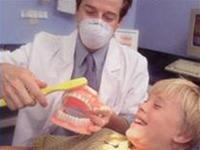Brushing your teeth twice a day with fluoride toothpaste, flossing daily, and getting regular check-ups at dental clinics are essential practices for maintaining oral health, especially for the elderly.
 |
| Common diseases in older age, such as diabetes, cardiovascular issues, and cancer, can also impact oral health. |
Of course, if you take good care of your teeth and maintain proper oral hygiene, you can keep your teeth for a longer time. However, for the elderly, even with diligent brushing and flossing, you may notice that your mouth becomes drier, and your gums may recede.
Your teeth, despite being well cared for, can still become slightly yellow, brittle, and prone to breaking. Many elderly individuals can keep their natural teeth for their entire lives. However, as saliva production decreases, it becomes more challenging to wash away bacteria, making teeth and gums more susceptible to decay and infection. If you cannot maintain your natural teeth, dentures should be used to ensure you can eat properly.
Many individuals suffer from dry mouth (xerostomia), which can lead to tooth decay and infections. A dry mouth can also make it difficult to speak, swallow, or eat. Oral cancer can also occur in older adults, so regular dental check-ups are crucial for early detection.
Tooth decay and root abscesses are quite common among the elderly. Sensitivity can exacerbate these issues. As we age, the gums may recede, exposing parts of the tooth root that lack protective enamel. These areas can be very sensitive, causing pain when consuming extremely hot or cold foods and beverages, or overly acidic or sweet items.
If you frequently experience this condition, consider using anti-sensitivity toothpaste or ask your dentist for a topical treatment. If the problem persists, consult your dentist, as this may indicate a more serious issue, such as a cavity or a crack in the tooth.
Common diseases in older age, such as diabetes, cardiovascular issues, and cancer, can also impact oral health. Therefore, it is essential to inform your dentist about any medical conditions you have so they can provide better guidance.
Elderly individuals often require dentures. In this case, special care is necessary. Follow the instructions provided by your healthcare provider. Those with long-term dentures should have annual check-ups.
Gum diseases can occur at any age but are particularly severe for those over 40. Several factors can exacerbate these conditions, such as poor nutrition, and diseases like diabetes, cardiovascular issues, and cancer. Factors such as smoking, stress, and certain medications can also affect gum health. Gum damage can be treated, so early detection is crucial. Maintaining thorough oral hygiene is highly recommended.


















































